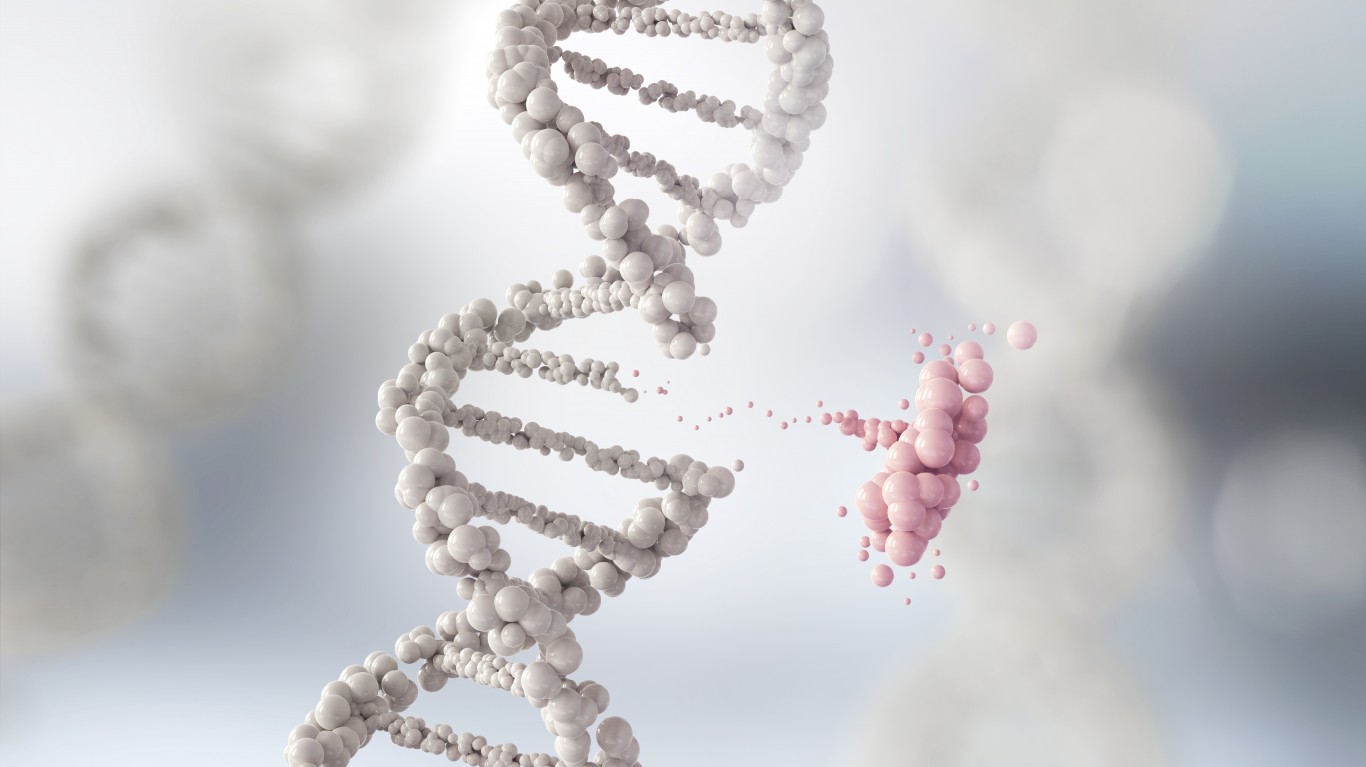Health and Healthcare
Potentially Good News for Those Who Suffer From Pompe Disease

Published:
Last Updated:

There may be some good news developing for those who suffer from Pompe Disease. Amicus Therapeutics, Inc. (NASDAQ: FOLD) has reported pre-clinical data from its Pompe disease gene therapy program and the results will be presented in the poster session at the ASGCT annual meeting on Tuesday.
Amicus noted that, following an IV injection through the tail vein of Pompe mice at up to 2.5E13 gc/kg, robust GAA activity was detected in plasma and skeletal muscles (tibialis anterior, quadriceps, and triceps. The company indicated that this was 10 to 20 fold higher levels than when compared to wild-type, depending on muscle group).
According to the National Institutes of Health, Pompe disease is an inherited disorder caused by the buildup of a complex sugar called glycogen in certain organs and tissues (especially muscles) and it impairs their ability to function normally. Pompe disease is said to affect about 1 in 40,000 people in the United States and the incidence of this disorder varies among different ethnic groups.
This could also change the standard of care for Pompe Disease if the clinical trials and eventual (assumed) success is seen from the treatment. The current standard of care for Pompe disease is an IV enzyme replacement therapy infusions every two weeks, but one problem is that only minimal amounts of protein are able to cross the blood-brain barrier to address the symptoms.
Janney’s Yun Zhong has a Buy rating and a $20 price target for Amicus. His report indicated that the study, while in its very early stages, was a positive for the company. That report said:
The inclusion of a lysosomal targeting motif in the engineered hGAA gene, which according to management should be the most differentiating part of the program, leads to significantly more efficient binding to the intended receptor. Additionally, an optimized signal peptide for increased secretion also contributes to better cross correction, which should be the key for LSD patients to benefit from gene therapy, as compared to the AAV vector containing the natural gene. Importantly, GAA activity was detected in the CNS and despite lower levels (20% of wild-type), glycogen levels were reduced to close to normal with the engineered transgene. We believe this morning’s data provides encouraging proof-of-concept for Amicus’ targeting and secretion technology that may be applicable across a range of multiple rare diseases. Amicus is moving ahead of schedule with the plan to choose a clinical candidate in 2019 to progress into IND-enabling studies.
Those who are hoping for a great outcome in Pompe Disease and investors alike are going to have to wait some time until the outcome of this study is proven out. Pre-clinical studies are a far cry from an approvable drug, and it is not cheap to bring any drug to market.
While the pre-clinical results were shown as a positive, Amicus shares were last seen trading down 2.2% at $13.15 as this is not a clear path to a marketable drug. The stock has a 52-week range of $8.27 to $17.62 and it has a $3 billion market cap.
Amicus targets rare and orphan diseases and its product Galafold is indicated for the treatment of adults with a confirmed diagnosis of Fabry disease and an amenable galactosidase alpha gene variant.
Want retirement to come a few years earlier than you’d planned? Or are you ready to retire now, but want an extra set of eyes on your finances?
Now you can speak with up to 3 financial experts in your area for FREE. By simply clicking here you can begin to match with financial professionals who can help you build your plan to retire early. And the best part? The first conversation with them is free.
Click here to match with up to 3 financial pros who would be excited to help you make financial decisions.
Thank you for reading! Have some feedback for us?
Contact the 24/7 Wall St. editorial team.